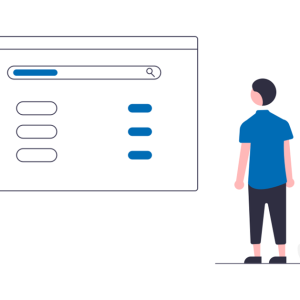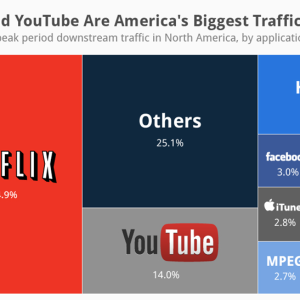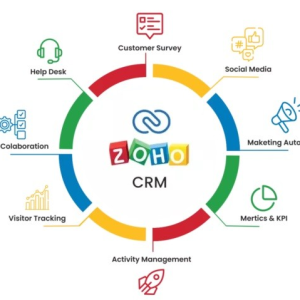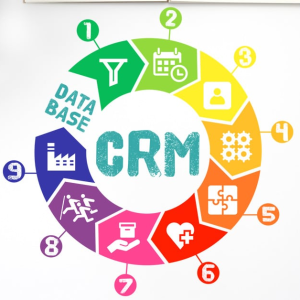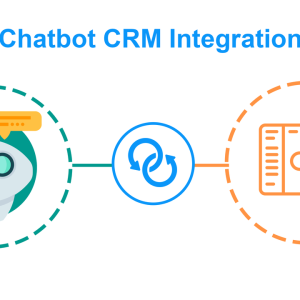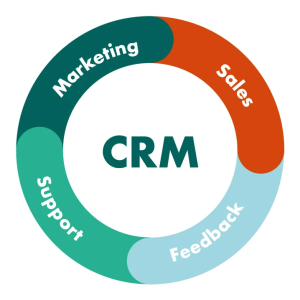Introduction
As an entrepreneur, comprehending the intricacies of the most ubiquitous search engine worldwide, Google, is pivotal for achieving better online visibility. Therefore, it is imperative to delve into the fundamental aspects of SEO and advanced tactics that leverage Google Ranking Algorithms, which influence the ranking of websites on search engine results pages (SERPs).
Through the course of this guide, we will endeavor to furnish you with a comprehensive insight into the methodology employed by Google to evaluate and rank websites, enabling you to gain a competitive edge in the digital realm. Consequently, upon reaching the conclusion of this guide, you will have attained an enhanced understanding of the nuances of Google’s website ranking system, empowering you to augment your website’s visibility and performance.
What Is Search Engine Optimization?
Search engine optimization (SEO), a practice aimed at enhancing the visibility of a website on search engines, primarily by augmenting its organic search traffic, encompasses two pivotal categories of optimization strategies: on-page SEO and off-page SEO. The former targets the optimization of elements residing within the confines of the website, such as meta descriptions, headers, and title tags, while the latter centers on off-site optimization tactics like link-building, social media marketing, and influencer outreach, all designed to bolster a website’s authority and credibility.

On-page SEO
On-page SEO, a meticulous process that involves fine-tuning a website’s content and structure to enhance its standing on search engine results pages (SERPs), constitutes a critical aspect of search engine optimization. One of the most important factors in on-page SEO is the presence of keywords – words and phrases that potential customers are likely to search for when looking for products or services like those offered by your business.
Google’s search algorithm takes into account a variety of factors when determining which websites to rank for a given keyword. One of the most important of these factors is the presence of keywords on the website itself. For your website to rank highly for a particular keyword, it must contain that keyword (or a close variant thereof) in its content.
This doesn’t mean, however, that you should stuff your website full of keywords in an attempt to game the system. Google’s algorithm is sophisticated enough to detect when a website is engaging in keyword stuffing and will penalize it accordingly. Instead, focus on creating high-quality, keyword-rich content that will be valuable to your potential customers.
In addition to the presence of keywords, Google also looks at the overall structure of your website when determining its ranking. That we will discuss in the sections further.
Off-page SEO
Off-page SEO is all about the things you can do external or outside the website to improve your brand visibility. This includes, building backlinks from quality websites, guest posting, forum participation, video marketing, and more.
Google looks at several features when deciding a rank for a website. One of these factors is the number and quality of backlinks pointing to the website.
A backlink, simply put, refers to a hyperlink from one website to another. Such an act of linking from one site to another is akin to an endorsement or a show of faith in the destination site’s reliability and relevance. The more such endorsements you have, the higher the probability of improving your website’s standing on search engine results pages.
However, it’s essential to note that a backlink’s quality determines its efficacy. A high-quality backlink must originate from a website that has a well-established reputation, relevant and keyword-dense content, and an extensive network of linkages.
One strategy for acquiring high-quality backlinks is by crafting and publishing articles on popular websites or blogs within your niche. In this approach, you will include a link to your website, thereby attracting a significant amount of traffic.
Another technique is to produce informative and shareable content, such as infographics or blog posts, on your website. By sharing this content on other websites, you can garner a substantial number of backlinks from third-party websites, increasing your website’s overall ranking.
As we highlighted earlier, Search Engine Optimization (SEO) is the art of optimizing a website’s visibility on search engines. An in-depth understanding of the step-by-step process of how Google assesses and ranks websites can be beneficial in troubleshooting and improving your website’s overall ranking.
How Does Google Ranking Work On Websites?
Google’s intricate algorithmic system responsible for ranking websites on the search engine results pages (SERPs) encapsulates a vast array of over 200 multifaceted ranking factors, spanning from the caliber of a website’s content, the quantity and quality of backlinks it generates, to its loading speed and user experience.
Nonetheless, beneath this seemingly labyrinthine algorithmic framework, a fundamental tripartite process underpins Google’s search ranking mechanism. To truly grasp the intricacies of how Google ascertains a website’s ranking position, one must first zoom out and observe the broader picture, appreciating the holistic approach that Google’s algorithm adopts in ranking websites.
The Crawling Process
At the crux of Google’s search ranking methodology, we find the rudimentary process of crawling, which serves as the bedrock upon which Google’s web crawlers (or “spiders”) traverse the vast digital expanse in search of new websites, unraveling their essence, and deciphering their intricacies.
The crawling process involves a meticulous scrutiny of a website’s codebase, scrutinizing each line of code and the semantic structure of its content, while simultaneously navigating through the labyrinthine network of links that interconnect websites in the digital sphere. Upon successfully indexing a website’s content, the Google algorithm initiates the process of ranking, ultimately determining the website’s position on the SERPs.
The Indexing Process
Subsequent to Google’s intricate crawling process, the search engine behemoth initiates the indexing phase, which involves the storage and retrieval of a website’s pages in Google’s vast database, rendering them readily available to users scouring the digital realm in search of relevant information.
However, with millions of websites vying for a coveted position on the SERPs, Google’s ranking process comes into play, utilizing a sophisticated algorithmic model to determine which pages merit inclusion in the search results. This process, known as ranking, encompasses a multifaceted approach that incorporates a variety of factors, including but not limited to, content quality, relevancy, authority, and user engagement, all crucial in ascertaining a website’s positioning on the search results pages.
Ranking Your Website
Google’s ranking algorithm is an intricate web of over 200 disparate factors, comprising website content quality, backlink quantity, and website loading speed, to name a few. However, despite this complexity, certain ranking factors reign supreme.
Some of the most important ranking factors include:
The quality of your website’s content:
Undeniably, the quality of a website’s content is one of the most critical ranking factors, owing to Google’s unequivocal aim of providing users with the best possible results. As such, websites with well-written, insightful, and cogent content receive priority in search engine results pages. Hence, to bolster your website’s ranking prospects, ensure that your website’s content is lucid, pithy, and informative.
The number of backlinks you have:
Moreover, the number of high-quality backlinks that a website has is another critical ranking factor. Google accords more significance to websites with a surfeit of such backlinks from reputable websites. Therefore, to enhance your website’s ranking, focus on acquiring a profusion of high-quality backlinks from diverse sources.
Your website’s loading speed:
Your website’s loading speed is an additional crucial ranking factor that Google evaluates meticulously. Given that users prefer not to wait, Google prioritizes websites that load briskly. Thus, to bolster your website’s ranking prospects, ensure that your website is optimized for speed.
Title tags and meta descriptions:
In addition to website loading speed, title tags and meta descriptions are pivotal in enhancing your website’s visibility in search engine results pages. These terse fragments of text appear under your website’s title in the search results, and therefore, must be concise, captivating, and factual to augment your website’s click-through rate.
Search intent:
You must align your website’s content with the user’s intention when they conduct a search to secure a high ranking on the search engine results pages. Simply put, your website must provide users with the exact information they’re searching for, in order to achieve optimal visibility.
Keywords:
Keywords, on the other hand, are the backbone of your website’s visibility. They assist Google in matching users’ search queries with the most appropriate websites. Therefore, it’s crucial to incorporate keyword-rich and relevant content on your website to optimize your chances of being found by potential customers.
Domain authority:
Meanwhile, domain authority is a measure of your website’s popularity and trustworthiness. Google ranks pages with incredible domain authority on the top, hence desirable.
Website security:
Google places a significant emphasis on website security, hence obtaining an SSL certificate and ensuring HTTPS compliance is crucial to boost your website’s ranking. On top of that, Google is keen on providing users with the most pertinent search results, meaning your website’s content must align with the user’s search intent to rank high on search engine results pages.
Mobile-friendliness:
As the world becomes increasingly mobile-centric, Google recognizes the pressing need to prioritize mobile-friendly websites in its search rankings, emphasizing the significance of optimal mobile usability in securing higher rankings on the SERPs.
Beyond this, Google’s ranking methodology encompasses a multifarious array of factors, ranging from the quality and relevance of a website’s content to the quantity and quality of its backlinks, all culminating in a sophisticated algorithmic model that determines a website’s search ranking.
While it’s not feasible to delve into the nitty-gritty of all 200+ ranking factors, obtaining a comprehensive understanding of the most critical ones could bolster a website’s chances of soaring high on the search results pages.
Nonetheless, we cannot anticipate the intricate formula that Google employs in its algorithm, as the tech giant is continually refining and updating it. Hence, the dynamic nature of SEO underscores the need to stay abreast of the latest developments and emerging best practices, as it remains an ever-evolving field.
What Can You Do To Improve Your Website’s Visibility?
To bolster your website’s prominence, there are several practices you could execute, such as:
- Optimizing your website for search engines: This could entail the usage of applicable keywords, augmenting your website’s swiftness, and making certain your website caters to mobile devices.
- Enhancing your website’s content: As we have earlier stated, your website’s content is one of the most critical ranking factors. To increase your prospects of ranking high in search results, ensure that your content is informative and well-written.
- Obtaining more backlinks: You could achieve this by guest blogging, creating informative infographics, and deploying other link-building approaches.
However, exercise caution and avoid going overboard, as some linking methods could lead to a ban from Google. Here are the linking methods you should steer clear of:
- Buying links: Google will penalize your website if it finds out you’re buying links, so it’s not worth the risk.
- Reciprocal linking: This is when two websites agree to link to each other. Google frowns upon this practice, so it’s best to avoid it.
- Link farms: These are websites that exist solely to provide links to other websites. Google considers these to be spammy and will penalize your website if it finds out you’re linked to one.
To know more about the link-building practices, stay in the loop with our articles. We have a whole article dedicated to it.
4. Monitor your website’s performance: Use Google Analytics or another web analytics tool to track your website’s traffic to see if the results match your expectations to further improve the strategy if there is any lack.
5. Stay up-to-date on the latest SEO trends: Fields are always changing and SEO is no exception. Keep up with the market trends and know which practice works better to ensure your website is always on the top fo the SERP’s.
By following the above tips, you can increase your website’s visibility and organic search traffic, which could potentially attract more customers to your website. And don’t forget to check out our blog to stay current on the latest trends in the SEO world!
Conclusion
It’s crystal clear that SEO is far more intricate than just revamping your website to appeal to the search engines. The field of SEO is always evolving, and thus, it’s crucial to keep yourself updated with the current trends and best practices. Nevertheless, by adhering to the suggestions laid out in this guide, you can increase your website’s prospects of ranking prominently in the search results.
An agency can help you with an SEO strategy customized according to your business type and needs. And when you’re ready to take your SEO game up a notch, contact us at 12 channels and our subject matter experts will be more than happy to help!


